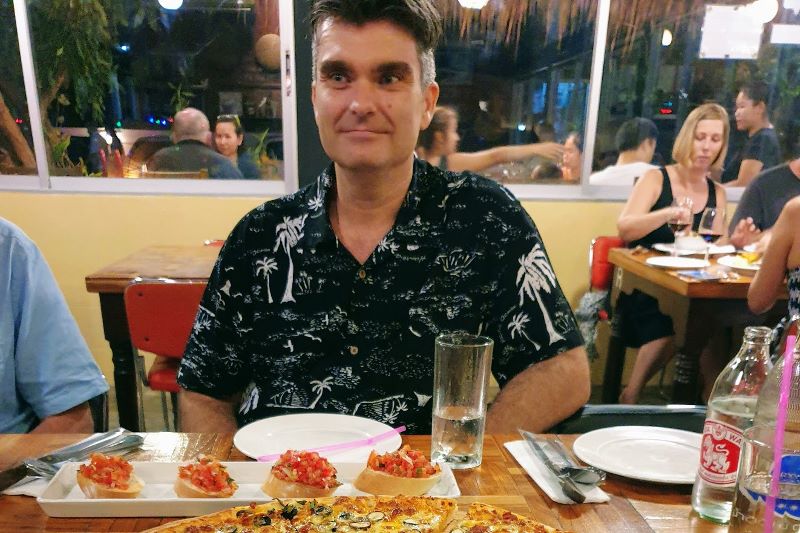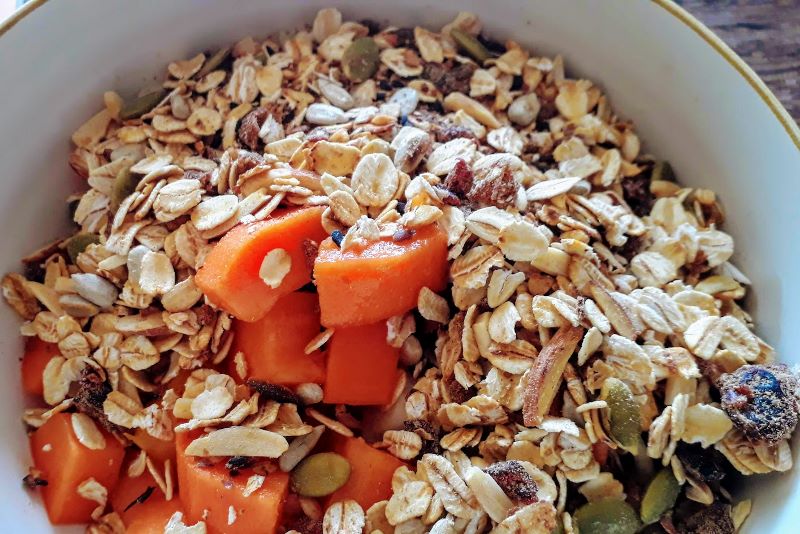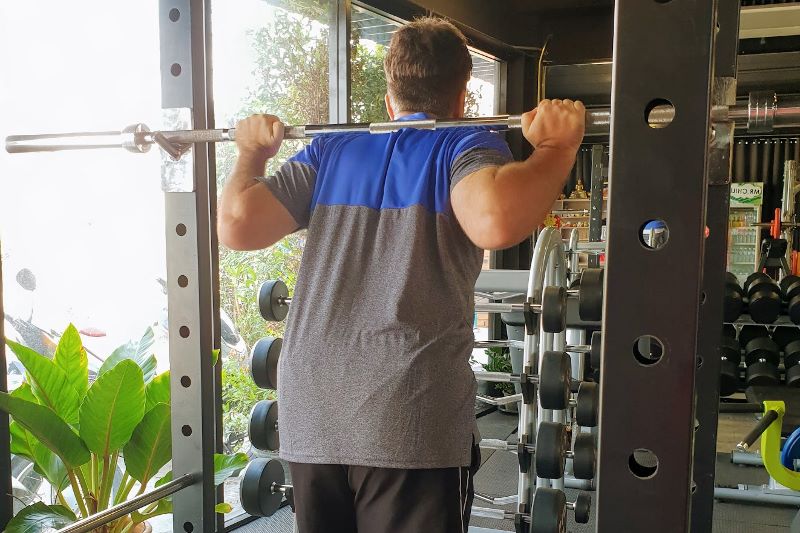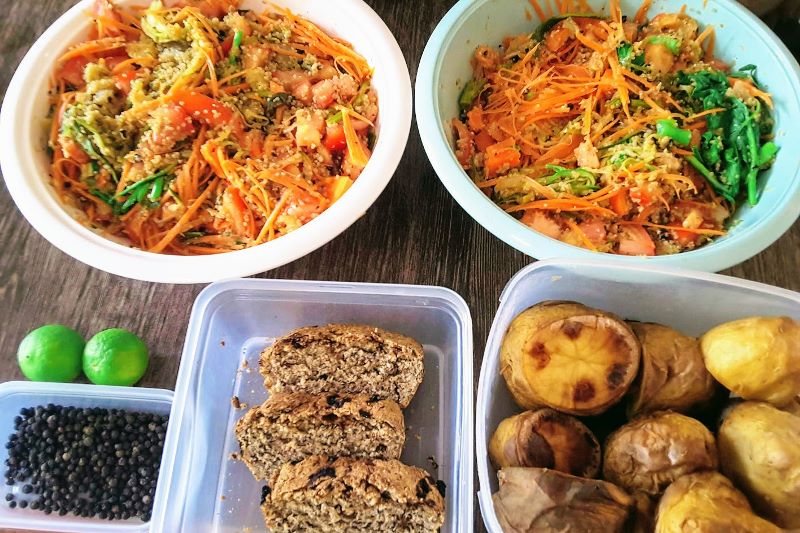I went vegan instantly. I sat down, thought about it, and since that moment I have not eaten any animal products. This will not be everyone’s experience, but I can share some of the things that helped me on my journey.
Over the past 2 years I have experienced significant weight loss, feel more energetic, started regular exercise for the first time in my life, learned to cook, learned more about the world and have started to feel more hopeful about the future.

If you are interested in the weight loss part of my story, check it out here: How to Lose Weight with a Vegan Diet
Going Vegan: Just Do It!
One day in April, I was sitting in the lounge room and quietly thinking. I had borrowed a book from a friend the previous week which had me thinking about industrialized food production. It occurred to me that if I was going to spend time reading about this stuff, it might be a fun approach to eat more deliberately for a short time.
As my wife walked through the lounge room, I called out “Would you mind if I went vegetarian for a while?”. Expecting my venture would end right at that moment, I was surprised that there was no exercise of veto powers. Oops – I guess I am really doing this now?
I vaguely knew the differences between vegan and vegetarian, but not much else. The important thing was that I had made a decision to act!
Transition: Hello Fiber, Farewell Animal Parts
I went completely vegan in an instant. The reason it was easy for me to make the change, was that I already ate a lot of fruit and vegetables. I was never a milk drinker, and ate only a moderate amount of processed foods.
If your current diet is all cheeseburgers and bourbon (for example) it is reasonable to expect that your body will have difficulty accepting a whole food plant based diet on day one.
The important thing is to make a step in the right direction and build from there. If the only vegetable you like is potato, then great, eat a potato! Just don’t fry it: boil it, steam it, or zap it in the microwave!
Don’t Go Hungry
Most people fail to transition to veganism because they simply don’t eat enough. All those steamed potatoes in the fridge in the early weeks (and batches of frozen meals cooked in the months after) saved me from craving any of my old food.
Learn About Vegan Nutrition
You can’t go too far wrong in the first week. Clean out your fridge and start eating plants. There is much more involved in your long-term health, however, so this is the time to start learning more about nutrition.
Recognized experts include: Dr. Michael Greger, Founder of NutritionFacts.org Dr. Neal Barnard, President of Physicians Committee for Responsible Medicine Dr. Caldwell Esselstyn: www.dresselstyn.com Dr. Michael Klaper: www.doctorklaper.com T. Colin Campbell, PhD: nutritionstudies.org Dr. John A. McDougall: www.drmcdougall.com Dr. Joel Fuhrman: www.drfuhrman.com Dr. Dean Ornish: www.ornish.com
Some initial things I learned were:
- Vegans should take a vitamin B12 supplement
- Protein is a non-issue for most people – nobody is protein deficient (technically you are protein deficient if you starve to death, but at that point you have bigger problems). Discussion of protein in only interesting in the context of performance for elite athletes.
- Ground flax-seed is a useful addition to a vegan diet
- Eating some salt is fine, especially if you are not eating processed foods
- There are other reasons why unprocessed food is undesirable
- Calorie dense foods make you feel hungry (oil has twice the calories of white sugar). A stomach full of vegetables is a better option.
There is obviously more to the subject, but I would prefer to leave the details to more qualified individuals.
Take a Vitamin B12 Supplement
I already mentioned this above, but it is important enough to say again! B12 is not created by plants or animals, it is created by microbes within the soil. Our ancestors ingested B12 by eating poorly-washed root vegetables.
Modern humans do not generally eat a lot of soil, so without supplementation they are generally reliant on fortified foods, including B12-injected livestock.
Yes, plant foods can be fortified with B12, but the medical consensus is to take a supplement. B12 deficiency is a serious problem, don’t risk it.
Embrace a Whole Food Plant Based Diet

I ate the same thing for breakfast every day: Homemade Vegan Muesli.
I found it helpful to have a balance of routine, prepared meals, and some cook-to-order meals to add variety.
The main objective each day was to eat enough carbohydrates to feel full and meet my calorie needs. I was also buying as many different fresh seasonal vegetables as possible and experimenting with new recipes to keep things interesting.
Cook your own Food
Not everyone has the time to cook all of their food, but whatever you can manage really helps you take control of what you are eating. Can’t cook? Now is a good time to learn – see some of my simple recipes.
Batch Cook and Freeze Meals
If you cook something really healthy, cook a lot of it: you can save a lot of time and ensure many healthy meas this way.
Try New Foods
I ate a lot of potatoes when I started because they were easy to cook, I have since learned to cook all sorts of vegetables, beans & grains. For others, I know that even tasting new foods will be a challenge rather than cooking – but be bold, this is your new life!
Try New Drinks
If you can’t simply make the break from juice or soda to water, then try drinking tea or coffee. For me I was in the habit of drinking beer on social occasions, so I started drinking bottles of club soda so I had something in my hand with 0 calories.
Regular Exercise

My renewed interest in physical activity led to a whole other adventure I have written about in this article: How to Start Training.
I could have lost just as much weight without exercise. In fact I am sure I would have lost more because I really stepped up my calorie intake to help with strength training. I did notice a mental shift towards seeing food primarily as nutrition critical to strength development. Personally I think I had already adjusted my thinking about food pretty well, but I have seen this be a powerful factor in the success of other people’s relationship to food.
Have a Plan for Social Occasions
I am not an overly social person, and it is true that I say no to more invitations now. I am happy with this. If I need to drink and indulge with calorie-dense food to feel comfortable at dinner then there are better uses of my time.
With people I truly care about, I am always happy to sit at a dinner table and enjoy the conversation and company.
I don’t think of my diet as restrictive. There are only two things I don’t eat: animal parts and animal secretions. On the other hand, these are very common ingredients in restaurant food.
I usually have a meal before I go out, then find something small on the menu I can eat. This puts others at ease, and also allows friends to indulge the fantasy that I must not eat much. I think it can be quite confronting for people to see how much I really eat on a plant-based diet.

